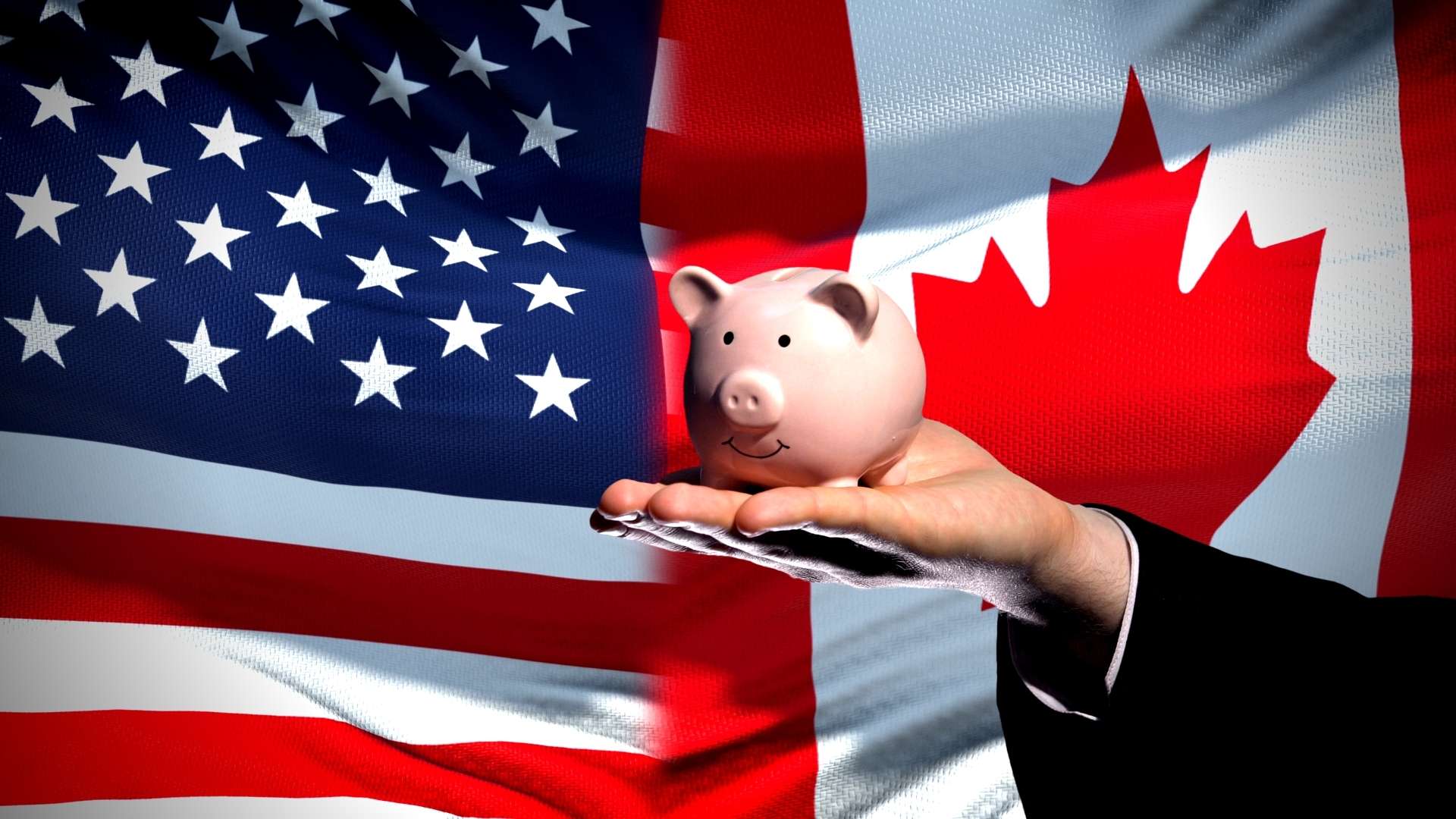U.S. Income tax is one of the most complex tax systems in the world. Being a global leader, many times international businesses get their income connected to the U.S. and they even don’t know it. The first pain-point, especially for small businesses, is an inability to determine if they are subject to U.S. tax or not!
So, if you are looking for the answers to the questions like below, this post might be for you.
- When is a foreign corporation subject to U.S. income tax?
- I use agents in the U.S., does it mean I have to pay U.S. taxes?
- I have hired a contractor in the U.S., do I need to file a U.S. income tax return?
- I am using Amazon U.S. Store; do I need to file U.S. income taxes?
The United States has tax treaties with many countries which exempt or reduce tax rates on certain kind of income. Depending on the country of residence (tax residency), a treaty with that specific country will provide certain reliefs. It’s important to check the tax treaty with your country. This post refers to the Canada U.S. tax treaty and meant for Canadian businesses.
Disclaimer: This post is for general information purposes. At no point in time, it can be considered as professional tax advice on U.S. Canada Cross Border Taxes. If you are a Canadian business having U.S. tax obligations, you are recommended to seek professional tax advice from a tax accountant specializing in U.S. Canada cross border taxation.
When is a Canadian Business Subject to U.S. Tax?
Income taxes on Foreign Corporations in the United States are pursuant to Internal Revenue Code (IRC) Section 882.
IRS Sec. 882 imposes taxes on foreign corporations on the taxable income which is effectively connected with the conduct of a trade or business within the United States. IRC Sec. 882 further specifies what is included in the Gross Income of a foreign corporation for U.S. tax purposes. Canadian corporations doing business in the U.S. are considered “Foreign Person”. For U.S. income tax purposes, a foreign corporation is a corporation which is not a domestic corporation (exception of IRC election 897(i))
Two major concepts are:
- Effectively connected income (ECI) from the conduct of trade or business within the U.S.
- Fixed, determinable, annual, or periodic income (FDAP)
Both ECI and FDAP are subject to two different tax regimes.
For Canadian businesses doing businesses in the United States, these concepts are similar to active business income within Canada and passive income in Canada. Of course, this is just for the reference purpose, U.S. and Canada tax treatments and/or characterization of income often significantly differ.
The U.S. Effectively Connected Income for Canadian Businesses
ECI is a very broad concept. Internal Revenue Service (IRS) has explained ECI here. Case law over the years has provided guidance on ECI. Courts have determined that in certain cases mere presence in the U.S. does not mean that it’s a U.S. Business. For an activity to be considered as a U.S. trade or business, it needs to be considerable, continuous, and regular. So if you are having a U.S. trade or business, your income connected to it is ECI. FDAP from U.S. sources (discussed next) is an ECI too. Owning a U.S. property can give rise to rental income and capital gains – that’s an ECI.
Since the threshold to be considered as a U.S. trade or business is very low, many foreign corporations are often subject to U.S. income tax obligations. Canada’s U.S. Tax treaty, however, provides relief to Canadian businesses!
Under the U.S. Canada tax treaty, business profits are only taxable in the United States if it reaches to the level of a Permanent Establishment. Article V of the U.S. Canada Tax Treaty provides details on the permanent establishment.
Permanent Establishment of a Canadian Corporation or Business in the United States
If a Canadian corporation has a Permanent Establishment in the United States, the business profits limited to that permanent establishment are taxable in the United States. There are foreign tax credits available in Canada when the same income is included in the worldwide income of that business in Canada.
How is the Permanent Establishment (PE) determined for a Canadian Corporation?
A Canadian corporation can be considered to have a permanent establishment in the U.S. in the below cases:
- Fixed place of business in the U.S.: For example, a warehouse, manufacturing facility, workshop, a branch, office or place of management etc, Article V Paragraph 2 of a consolidated version of Canada U.S. tax convention provide the list.
- Dependent agent in the U.S.: A Canadian business (business which includes both a corporation or an unincorporated business) has PE if it has a dependent agent in the U.S. having the authority to sign contracts on its behalf. Canada U.S. tax treaty specifically states a mere use of broker, commission agent or any other independent agent is not considered to have caused PE for Canadian business.
- Services PE in the U.S.: A Canadian business is considered to have services PE in the U.S. If the services are provided to U.S. customers for 183 days or more in 12 months period by an individual who was physically present in the U.S. In such a case Canadian corporation has PE if gross income from these services is more than 50% of its total income.
Some of the examples when Canadian Corporations do not have Permanent establishment in the United States are also stated in the Canada U.S. Tax Treaty. For example, if Canadian business is using warehousing services only. A common example of this is Amazon FBA. Using a broker, commission agent or independent agents as mentioned above. Using advertising services, the supply of information, scientific research or similar activities as outlined in Article V.
A complete list can be found here on Canada U.S. Tax Convention.
This is important to mention that a Canadian Corporation is taxed on the U.S. ECI up to the extent of ECI. However, it still needs to file income tax return 1120-F and claim treaty-based exemption 8833. In other words, U.S. tax filing still needs to be done. If not sure, still file a “protective return”.
Read: U.S. taxes for U.S. Amazon Store
U.S. taxes for FDAP Income from U.S. of Canadian Corporations
FDAP stands for fixed, determinable, annual, or periodic income. This is separate from the ECI from PE (as explained before) due to the application of different rules.
Generally, foreign corporations deriving FDAP from the U.S. are subject to a 30% withholding Tax unless reduced by a tax treaty. Dividends, Interest, rents and royalties are considered FDAP whereas Capital gains are not FDAP. (Capital gains are considered Canadian sourced unless it originates from real property).
The Canada U.S. Tax treaty reduces the rates of withholding on certain types of income. For example, Article XI provides details on Interest, Article XII on royalties, and Article X for dividends.
Other U.S. Taxes for Canadian Corporations
Previously we discussed taxes on business profits and FDAP Income. Both of these are subject to different tax regimes. There are other tax considerations for Canadian corporations that have ECI from U.S. trade or business.
Branch Profit Taxes:
Canadian corporations having a permanent establishment in the U.S. are also subject to Branch Profit Tax on the business profits of that specific branch. The Canada U.S. tax treaty reduces the branch profit tax rate to 5% as compared to a general rate of 30% for non-treaty countries. The first $500,000 are exempt from branch profit tax. This is a lifetime limit not annual.
Branch Level Interest Tax
The Canada U.S. Tax treaty applies a 0% tax rate therefore branch level interest tax is irrelevant in tax planning for a Canadian corporation having U.S. PE.
FIRPTA for Canadian Corporations
Capital gains for foreign corporations are not taxed in the U.S. since they are foreign-sourced. However, in the case of real property, foreign interest in the real property tax act (FIRPTA) is applicable. Under Canada U.S. Tax treaty 15% tax is withheld from gross proceeds of disposition of U.S. real property interest. When a Canadian corporation files U.S. corporate tax return for a foreign corporation (1120-F), it might be able to recover FIRPTA.
U.S. Corporate Tax Filing for Canadian Corporations
Canadian corporations with U.S. tax filing requirements are required to file form 1120F. If a foreign corporation has a place of business or office in the U.S., this is generally due on the 15th day of the fourth month after the corporation’s tax year-end. If the corporation does not have a place of business, it is due on the 15th day of the 6th month after the tax year-end. An automatic extension is requested by filing form 7004 by the due date.
U.S. taxation for Canadian Corporations is a complicated tax topic and needs formal tax advice from a professional tax accountant in Canada who has in-depth knowledge of both U.S. and Canada Tax systems.
This post is written by Maroof Hussain Sabri who is a Certified Public Accountant (CPA) licensed in the United States, and a Chartered Professional Accountant (CPA) and Chartered Accountant (CA) in the province of Ontario and Alberta. Maroof HS CPA Professional Corporation provides tax planning and tax preparation services for businesses with U.S. Canada cross border tax issues. Get in touch with us and let us know how can we help you.





